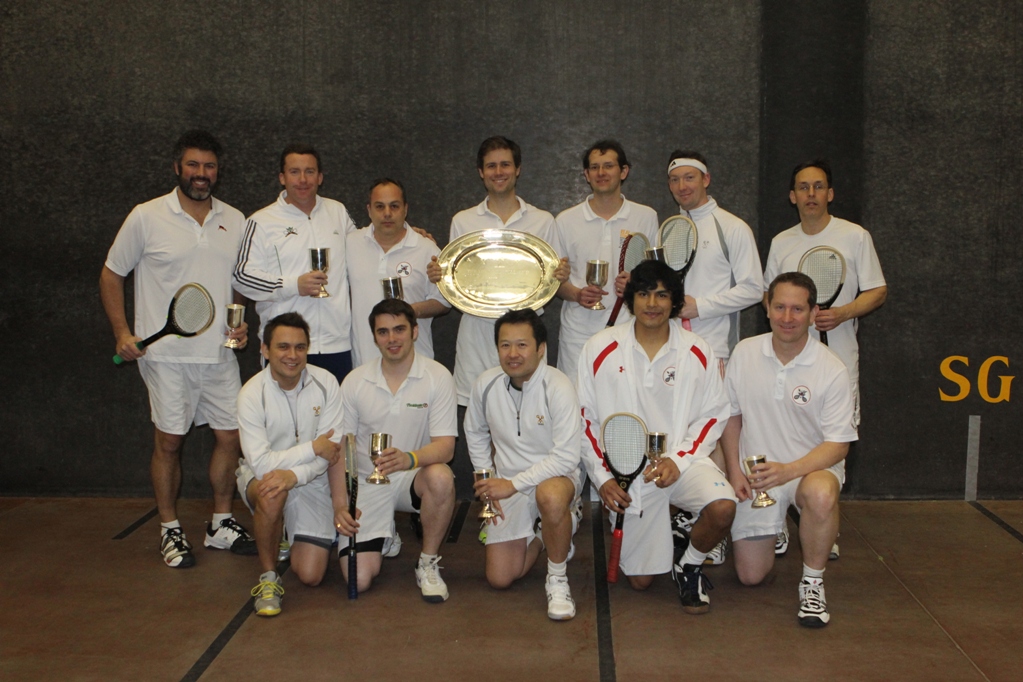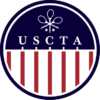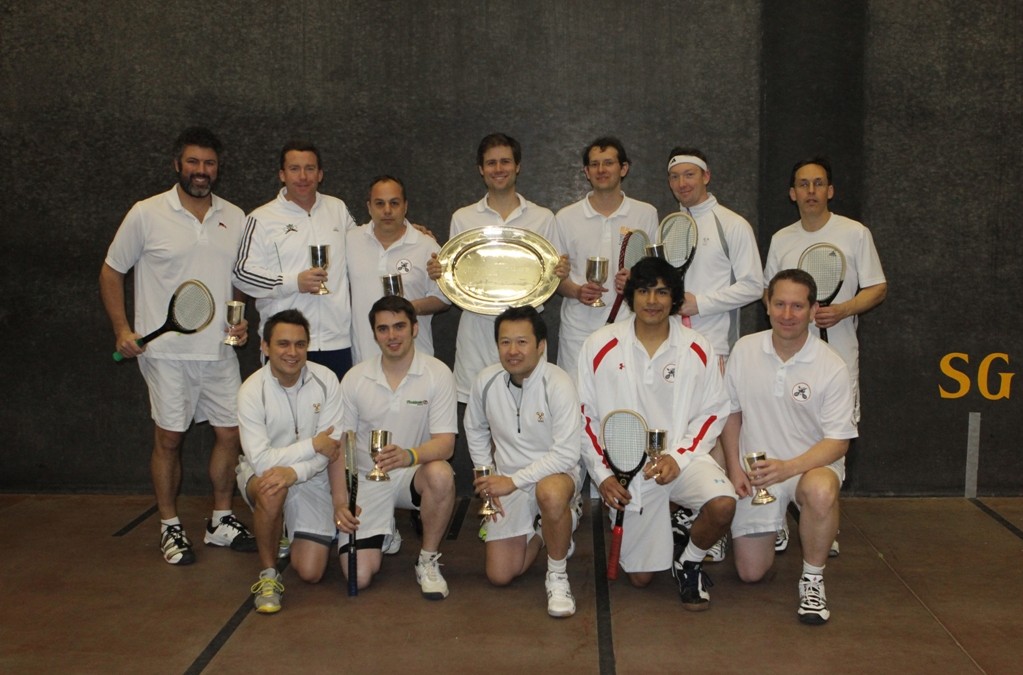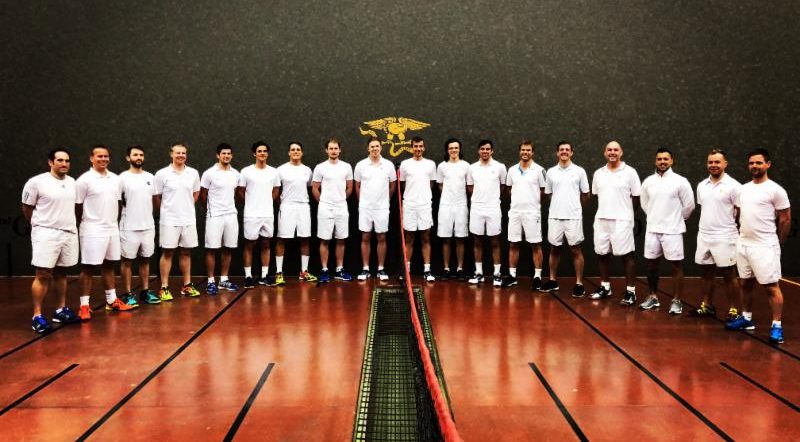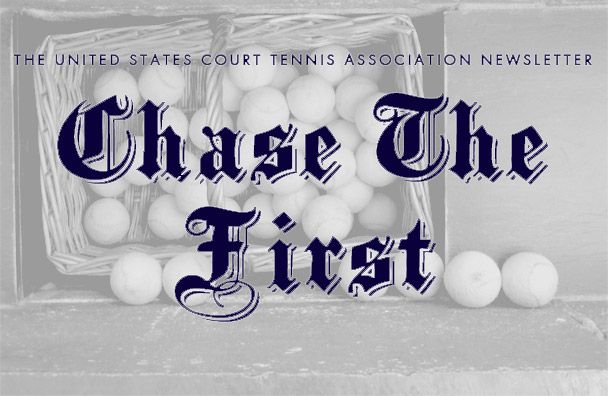The twenty-first annual Lord Percival Cup came off with fantastic play at the Racquet Club of Philadelphia. A national inter-club team tournament founded in 1992, the Percy featured a new format where each active club in America—save two—sent a team. To fill out the eight-team draw, both New York and Washington brought a second team. It was the largest Percy on record and made for a great weekend.
The tournament got off to a superlative start on Friday morning, March 15. It was clear from the beginning that the all the teams were seriously vying for silver hardware and the chance to hold the famed Percy silver tray. Matches throughout the first day were close. Teams played off half-handicap and the goal was not simply to win the 8-game pro-set but no matter what to win as many games as possible in the allotted forty-five minute time period (it was games not matches won that determined the round-robin winners). Captains offered instruction and tried to keep their players strong and focused; this was going to be a close tournament and there were no clear front-runners. As New York #2 and DC #2’s afternoon match rolled into Aiken v. Newport, Rob Whitehouse, RCOP’s head professional, could see that this was going to be a memorable tournament.
Philadelphia and Boston put on a strong cocktail match as Lord Percival and Irish Invitational black-tie dinner-goers looked on. The Boston men, always making their presence known, cheered on in from the dedans and Philly’s A-side, feeling the pressure, struggled to get points. Philly’s B and C players, however, seemed to thrive off the attention, and handedly defeated Boston.
Participants then threw on their tuxedos and gathered over cocktails poured in the traditional RCOP style as they discussed standings, games won and lost, and miraculous winning gallery shots made throughout the day.
Boston and New York #2 led off early Saturday morning. Coffee was in poured in abundance and by the time the players stepped on the court, spectators had all but forgotten these men had been dancing downstairs only a few hours earlier.
Tensions were high throughout Saturday. The overall team scores were close and every team felt they had a chance to make it through to the Sunday final. Scoring reports were whispered throughout the fourth floor, and team captains appointed their best numbers man to confirm standings.
By the end of the late afternoon match between Philadelphia and New York #2, the stage had been set. DC #2 was taking on Boston and team captains were working out complex algorithms to see who would move on to the finals dance. Philly watched closely, hoping against hope that DC #2 and Boston would beat up on each other. DC #2 needed to win 19 of a possible 24 games against Boston to tie Philly, and 20 to play in the finals. On the other hand, Boston needed to sweep DC #2, winning 24 of 24 games to force Philly to a tiebreaker. Boston gave their best effort, winning the first match, but their efforts fell just tantalizingly short. DC #2 secured their spot in the finals, winning exactly 20 games to nudge Philly out by one mere game.
Saturday night was filled with fun as all of the competitors met for libations, sustenance and craic at the Happy Rooster, the Walnut Street tavern. Wins and losses were momentarily forgotten and players celebrated a long two days of tennis.
Sunday’s finals already had one team locked in, but the second was determined by the two Sunday morning matches. DC #1 took on Aiken and came ready to win, taking 23 of a possible 24 games, which put them far enough ahead to place them in the finals.
Washington had not seen a battle like this since the War of 1812 with Prince’s Court ruling the Percy finals. It promised to be a good match. However, DC #1, carrying the momentum from their near flawless victory earlier that day, rolled over DC #2 and handedly took the first two matches, securing their victory and for the fifth time giving Washington the honor of winning the Lord Percival Cup.
T